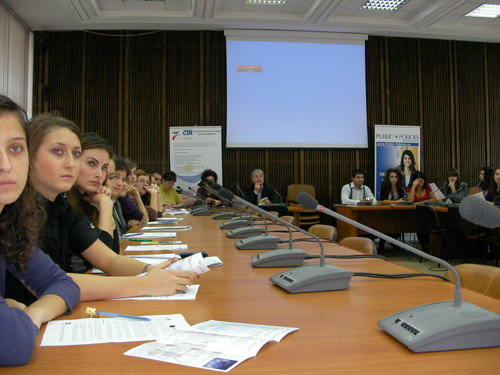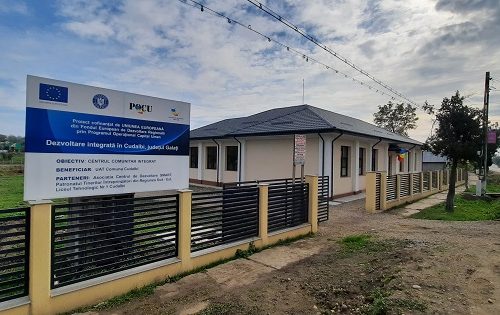Why don’t young people participate? (part 1)

During this time of the year I am attending the Romanian Youth Council’s Campaign “Participation for Development” as a partner. There are many meetings scheduled between young people and decision makers, but I attended the ones from Galati, Targoviste and Sibiu. Active participation is one of the main issues discussed and although there are many theoretical reasons why young people do not get involved in the lives of their communities, this project has identified some specific issues related to the situation in Romania. From my point of view, citizens do not participate and use their civic skills because there is a lack of “success stories of participation.” A success story occurs when a participative democracy exercise engages every-day citizens in finding solutions to community problems or prioritizing policies, recommends good solutions or initiatives to decision makers and those solutions are actually transformed in community action. It is possible that success stories are out there, but they are not promoted enough. But why is it important to generate success stories and then publicize them as much as possible? They show citizens who lack confidence in their abilities to influence a change of policy that “it can be done,” that the time used to solve a community problem is generating visible effects in the community and that positive examples may be multiplied. All these advantages contribute to increasing the awareness among citizens that they have real chances to generate constructive change in society. As a result, more people will become engaged as active participants.
Returning to the project of the Romanian Youth Council, the young people who have been consulted stated that they are not engaged in the decision-making process and that public authorities do not react fast and effective enough to problems of public concern. They believe that better knowledge of the public institutions and their roles in the community would increase the degree of civic responsibility, the desire to become a more active community member, the exigency towards public authorities, and the critical evaluation of elected officials. The participants at the seminars proposed the following strategies these challenges: public institutions and NGOs should promote their objectives and activities better through informational campaigns, the elected officials should inform, engage and recognize young people in the decision-making process, public consultations and new methods of communication and information should be used more largely. This way, young people would become more responsible citizens, more engaged and more attached to their communities. Here is where I jump in, as founder and promoter of SMART Method of Public Policy as a mixed participation tool using online technologies. This method can be used together with other methods of citizen engagement, to allow for more debate on problems of public concern. As traditional, offline methods usually last for a couple of days and are expensive to organize, SMART Method of Public Policy gives anyone the chance to express their constructive ideas on the European citizen engagement platform www.Public-Policies.eu and the Romanian one at www.PoliticiPublice.ro. Community problems and solutions may be published by concerned citizens and then they reach the desks of decision makers in the form of policy papers that recommend the valuable, feasible and sustainable ideas. I am also looking for local partner NGOs that will coordinate SMART Method of Public Policy at a local level.

















2 Comments
Tiago
Here’s an interesting PhD thesis on the subject:
NEW MEDIA, NEW CITIZENS
THE TERMS AND CONDITIONS OF
ONLINE YOUTH CIVIC ENGAGEMENT
http://eprints.bournemouth.ac.uk/16482/1/Core_Thesis.pdf
Pingback: